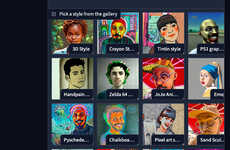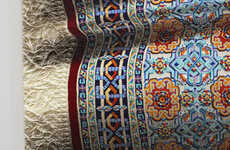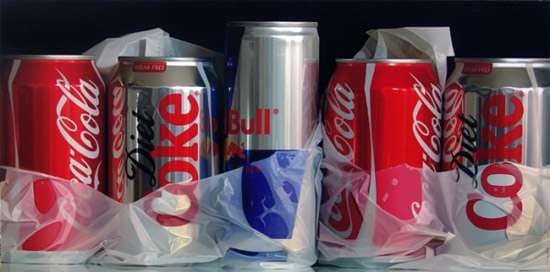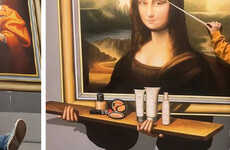
This 3D Art Will Fool You into Thinking that it is Real
Annie Ho — July 20, 2010 — Art & Design
References: robertobernardi & thisblogrules
If I didn't tell you that these images are paintings, you would probably would think that this was the real deal. However, these hyperrealist portraits are paintings!
Created by artists Roberto Bernardi, Eric Christensen and Steve Mills, these paintings take tremendous skill and time. Take a look at the pictures in the gallery and see how amazing they are. There are more works that belong to these artists at the links provided.
Implications - With computer graphics becoming increasingly realistic, consumers are now expecting this sense of realism from campaigns. Businesses would be wise to use advertising techniques that employ these graphics to appeal to the growing consumer base fascinated by the potential of these computer visuals.
Created by artists Roberto Bernardi, Eric Christensen and Steve Mills, these paintings take tremendous skill and time. Take a look at the pictures in the gallery and see how amazing they are. There are more works that belong to these artists at the links provided.
Implications - With computer graphics becoming increasingly realistic, consumers are now expecting this sense of realism from campaigns. Businesses would be wise to use advertising techniques that employ these graphics to appeal to the growing consumer base fascinated by the potential of these computer visuals.
Trend Themes
1. Hyperrealist Art - The rise of hyperrealist art opens opportunities for artists to showcase their skills in creating visually stunning and realistic pieces that can be used in various industries such as advertising and entertainment.
2. Computer-generated Realism - The advancement of computer graphics and digital technology paves the way for more realistic and immersive experiences in industries such as gaming, virtual reality, and film.
3. Consumer Demand for Realism - As consumers continue to crave more realistic experiences, businesses can cater to this demand by using hyperrealist techniques in their advertising and product designs.
Industry Implications
1. Advertising - Advertisers and marketers can utilize hyperrealist art and computer-generated realism to create visually stunning campaigns that capture the consumer's attention and leave a lasting impression of their brand or product.
2. Entertainment - Hyperrealist art and computer-generated realism can be used to create more immersive and realistic experiences in the gaming and film industries, providing audiences with a more captivating and memorable experience.
3. Art - With the rise of hyperrealist art, artists have a new platform to showcase their skills and creativity in producing visually striking and realistic pieces, attracting a broader audience from art enthusiasts to potential clients in various industries.
5.8
Score
Popularity
Activity
Freshness























